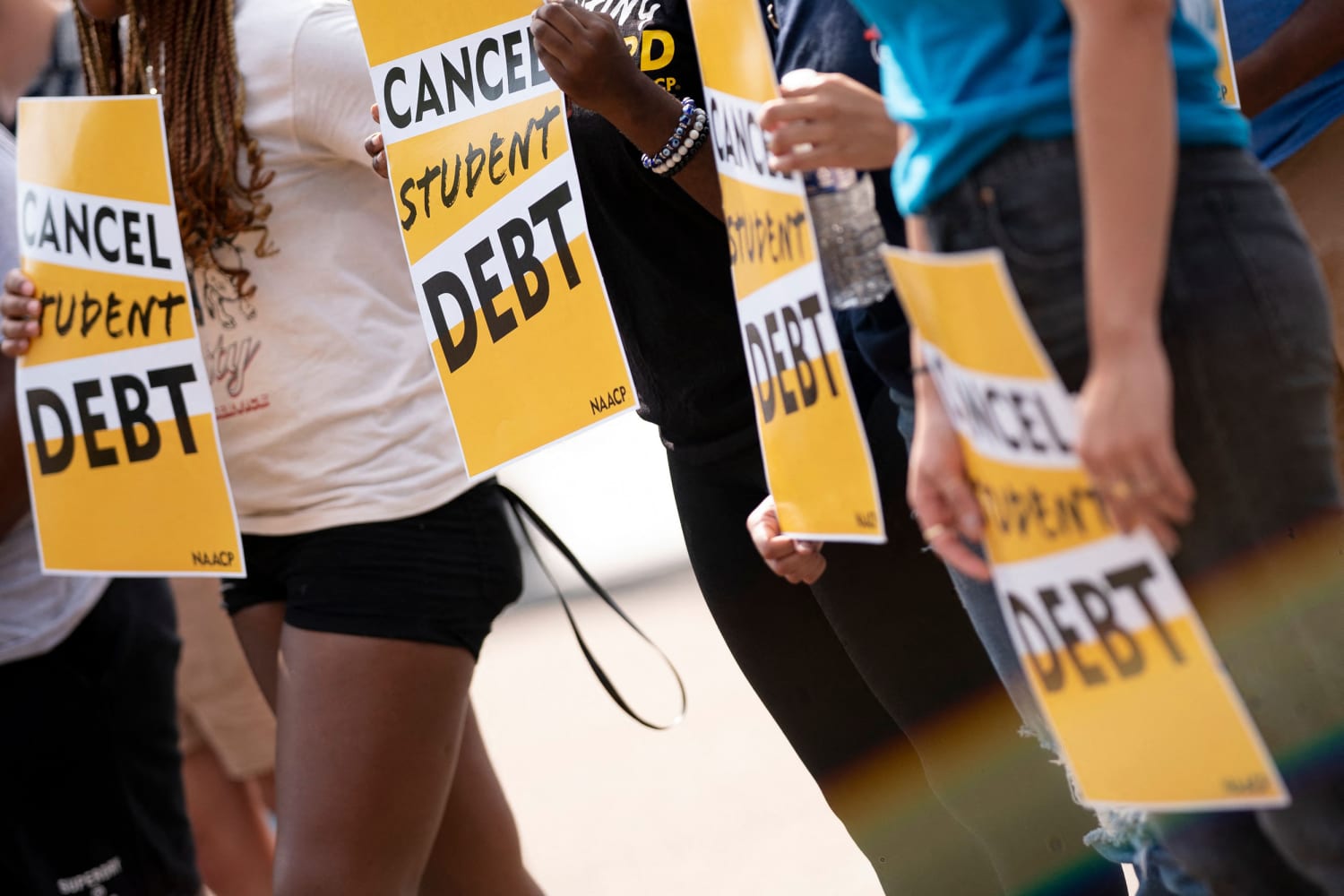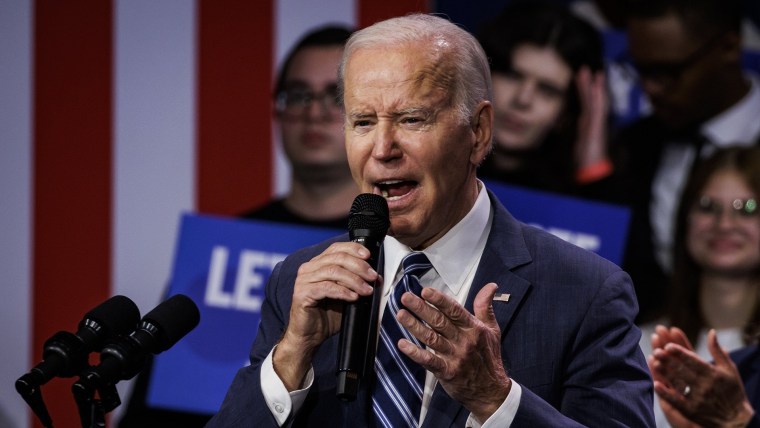A federal judge blocked President Joe Biden’s student loan forgiveness program on Thursday, declaring it unlawful. The decision has left me sad and frustrated, even though I’ve paid off all my college debt.
I was thrilled when I first heard about Biden’s student debt relief. Though I hadn’t borrowed money for graduate school and no longer had my undergraduate loans, many of my friends and coworkers still had theirs. Some of their interest rates are so outrageous that even a decade out, they still owe nearly as much as they borrowed. Many of them have multiple jobs.
They were — and are — living my old burnout life.
The increase in college tuition and predatory lending have created a situation where, unless you’re fortunate to get a full-ride scholarship or come from a lot of money, students are vulnerable.
When I was in grad school, I had three jobs. At my worst, I was a full-time student and covered the desk at a tennis club. And the content coordinator of a local magazine. And a graduate assistant — a position that came, miraculously, with a partial tuition waiver. I started dabbling in freelance editing, too.
I said yes to every opportunity. It was the only way to pay tuition.
I was also volunteering. Though I had myself scheduled down to the minute with work and classes, I also became a U.S. Tennis Association captain. I was elected treasurer of my university’s chapter of Sigma Tau Delta, an honors society for students studying English. I was also the editor-in-chief of my MFA program’s literary magazine.
I didn’t think I could say no to any of these things, even the ones that didn’t pay. I needed those to boost my resume to get a good job after graduation. Then I’d never have to live like this again.
Somehow I made it through my master’s program. And sure, I was so burned out by the end that I couldn’t celebrate, but hey, I made it, right? That would be a shortsighted takeaway.
The increase in college tuition and predatory lending have created a situation where, unless you’re fortunate to get a full-ride scholarship or come from a lot of money, students are vulnerable. The choice is either to work nonstop during school or to sign anything to offset the immediate costs.
I refused to take out loans as a grad student because that lack of understanding had scared me as an undergrad. Back then, I’d covered my tuition in a few ways: through my parents’ modest college fund, federal Pell Grants and Connecticut’s need-based Capitol Scholarship Program. In many ways, I was lucky.
There’s no feeling more alarming than logging on to Nelnet three weeks into the semester and seeing that I’d already accrued interest.
But even all that didn’t cover my full bill. For the rest, I needed loans amounting to a few thousand dollars per semester. I qualified for both subsidized and unsubsidized loans. The subsidized loans did not accrue interest so long as I remained a student, but interest on the unsubsidized loans began to accrue immediately.
There’s no feeling more alarming than logging on to Nelnet three weeks into the semester and seeing that I’d already accrued interest. It was enough to make me swear off any sort of student loan for grad school.
Was it worth it? Maybe. The system I used was broken, but it seemed smarter than signing on for additional loans at the time. When friends, family and professors found out about my three-job system, I tried to joke it off — “What’s a little hard work?” Their concern said everything I wouldn’t admit: that this system was unsustainable, that I was a half-step from burnout and that if I didn’t take a nap, I just might fall asleep driving home.
I was so focused on finances that I couldn’t see the forest for the trees. What I did was, frankly, reckless. But I was young, scared and desperate. I didn’t know better — and that’s one thing we need to change now. If students are going to borrow money for college, then they need to understand what they’re agreeing to. They should never be blindsided by a lack of basic information, such as the difference between subsidized and unsubsidized loans.
The same goes for the distinction between public and private loans. Though Biden’s debt relief focused on federal student loans, there have been problems with private lenders as well, including the suit against student loan giant Navient. In January, the company agreed to settle claims that it had intentionally targeted students who couldn’t pay back loans by canceling more than $1.5 million in debt. The company has denied any wrongdoing.
To put it simply: The system needs work. Even those in college administration can see there are problems.
Don’t get me wrong — there’s a place for financial aid, including Pell Grants, scholarships and maybe even loans, if the terms are fair and the borrower understands them. Research has shown that student loans increase access to financing and add to student diversity, which is great, but data also shows that women and people of color are disproportionately more likely to have debt.
Again, I’m lucky. My loans were minimal. Without them hanging over me after graduation, I had the time and space to think about my job choices and career in a purposeful way. I didn’t have to take the first position that came along if it wasn’t a good fit. When I wanted to leave a bad job, I could — and I did.
I couldn’t have done that if I’d had loan payments. This mindful decision-making is something that, frankly, everyone deserves. If people have the opportunity to work for companies well suited to their skills and interests, the benefits may extend beyond the individual to businesses as well: Research suggests that unhappy employees can cost their employers billions per year.
Student debt relief is one way to let people be people, first and foremost, and loanees second. Everyone could have a chance at winning in the process.
There will always be a place for hard work. There will always be a place for scrimping and saving, too. But we need to do these things because we choose to and not because our college system is broken.
Source: | This article originally belongs to Nbcnews.com










